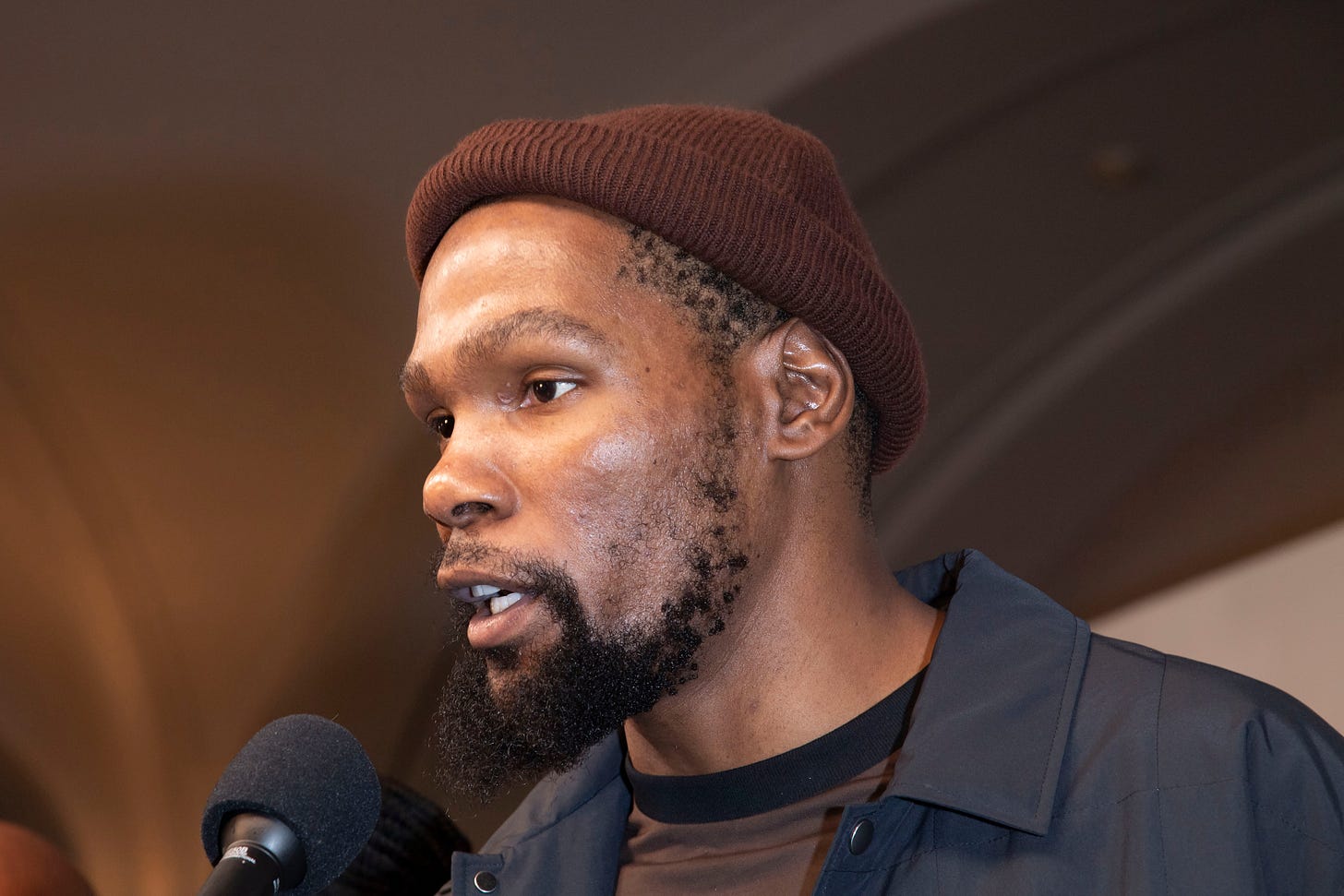What does cultural power look like? Well, Kevin Durant
Basketball star's PSG stake illustrates the continuing growth of sport's symbolic economy
News broke this week that Kevin Durant has become a minority owner of Paris Saint-Germain. Just let that sink in.
Let’s look at the concept a little. An NBA megastar. A Champions League-winning football club. A Qatari sovereign wealth fund. A basketball expansion plan. A media brand called Boardroom. And a city ‘Paris’ that sells prestige like no one else.
It’s a deal that is entirely in keeping with sport’s growing Symbolic Economy.
Durant doesn’t need more cash. He made $101.4 million last year. This move is about something else: cultural power. And it tells us where elite sport is heading, not towards more games or better stats, but towards greater meaning and a different kind of value capital.
In terms of historical elite, PSG is a relative newcomer, only being formed in 1970. Yet now the find themselves European Champions and heralded as the worlds best. Furthermore, outside of this the club has become an aesthetic ecosystem. The Jordan collaboration rewired football’s relationship with streetwear. The Messi signing was a soft-power masterstroke. And now Durant, a two-time NBA champion, four-time Olympic gold medallist, and one of the most culturally literate athletes alive, joins the project.
What does he bring? Prestige. Access. Taste. Global recognition. He gives the project symbolic capital. Durant is a walking bridge between the NBA, Paris, black excellence, street culture, and boardroom-level influence.
What’s new here is that Durant’s not just “joining” PSG. He’s advising them on expansion into basketball. Why? Because QSI, the Qatari fund behind PSG, isn’t just investing in football. They’re trying to colonise prestige across multiple sports. And basketball is the next frontier.
Durant will also co-produce media and investment content through his firm Boardroom. That’s critical. We’re not just talking about sport and entertainment linking up, we’re talking about the creation of cultural IP. He’s going to help script the club’s narrative across fashion, music, digital, and global brand markets.
The traditional sports business playbook can’t touch this. No ticketing model or broadcast deal explains why this matters. But an understanding of the symbolic economy does.
Why This Move Matters
Athletes are becoming aesthetic brokers, while clubs are now operating more like fashion houses, stitching together celebrity, culture, sport, and geopolitics into one fluent brand. This has enormous implications of how we think and research brands and soft power.
It also reflects a geopolitical logic. QSI are using PSG to reposition the Gulf not just as a financial centre, but as a global tastemaker. You can talk about national strategy all day. But the link up between Durrant and PSG says more about soft power than any political whitepaper.
The Future: Athletes as Operators
This is the era of the multi-hyphenate athlete. Not just playing. Not just investing. But shaping the symbolic field. Think: LeBron with SpringHill. Serena with Nine Two Six. Now KD with PSG.
These moves are symbolic takeovers. Moves that shift culture, restructure power, and rewire how sport is consumed and produced.
This deal isn’t about Durant buying into football for fun. It’s about PSG doubling down on its role as a cultural operator. It’s about Qatar using the club as part of a broader image strategy. And it’s about how elite sport now operates, through networks, symbols, and visibility.
It’s also a sign that sport and entertainment are no longer separate. They share infrastructure, audiences, and investors. If you’re still trying to split them apart, you’re not reading the room.





Enjoyed this story a lot. (Durant misspelled in the headline)